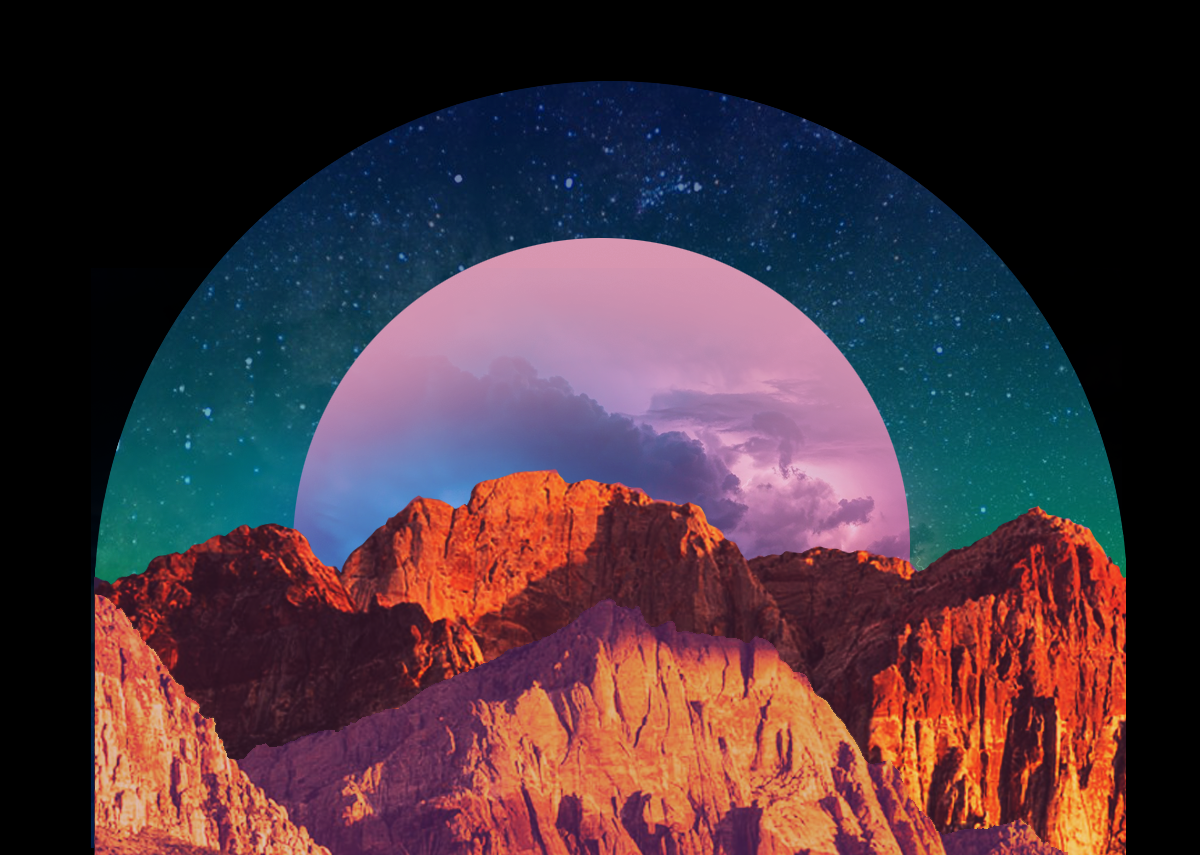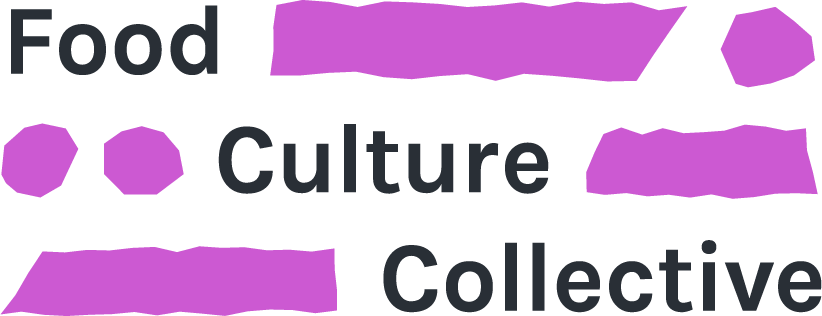
POSTCARDS
FROM 2050
A Food Culture Collective Community Art Project
Imagine forward with us—a future rooted in care and belonging. Where our food culture is defined by reciprocal relationships and is accountable to the land, water, and people to which we belong.
This is not just about fixing the “food system” or the “supply chain.” We don’t just have farm-to-table aspirations; this is land-to-culture-to-land work.
We all have a role to play in envisioning a future of belonging, shaped by care for the lands, waters and people that nourish us. At Food Culture Collective, we dare to dream of that future.
Dare to dream with us!
Dare to dream: An “irresistible” future, to use Toni Cade Bambara’s description, beckons us all. Art by Mer Young .
Browse the Postcards from 2050
Collective Visioning:
What would our world look like in 2050 if our dominant food culture was rooted in care, reciprocity, and mutual belonging with the land, waters, and peoples to which we all belong?
Collective Visioning: What would our world look like in 2050 if our dominant food culture was rooted in care, reciprocity, and mutual belonging with the land, waters, and peoples to which we all belong?
We invited Food Culture Collective community members to imagine forward with us to 2050—to a future rooted in care and belonging, where our food culture is defined by reciprocal relationships with the lands, waters, and peoples to which we all belong. Immerse yourself in this collection of messages & visions from that irresistible future.
-
November 18, 2050
xučyun, Lisjan Ohlone Territory
The soil smells joyful, fertile, happy. The living microbiome has been regenerated through collective human practices that have finally transcended cultures of dominance and extraction. My generation is witness to the revival of communal land stewardship. It was a struggle earlier on— often clouded with a collective feeling of impending apocalypse as millions of human beings perceived what seemed to be the ‘end of everything’... Only to realize that it was simply the end of dominance, of monocultural thinking and the zombification of our soil. The soil’s microbiome is now a beloved community again.Human beings act as midwives to the growth of nourishment by cultivating seeds and a regenerative biodynamicism that fuels life on earth. The elders, such as myself, now tell the stories of the power of tens of millions of people, who freed their imaginations; restoring their relationship to the land and to the future. Finally unafraid of a world in which capitalism, corporations, and monocultural food systems were no longer the benchmarks of [so-called] “progress.” The result of letting go of that fear? Reverence. Human beings have now collectively re-remembered that the soil microbiome and our internal microbiome are symbiotically connected to the future of nourishment for all. The soil smells joyful, fertile, and happy again. It is alive. We are alive.
With reverence,
Breeze
-
This postcard from 2050 was written by Black feminist scholar and Afrofuturist writer Dr. A. Breeze Harper
-
November 22, 2050
Snuneymuxw Territory
To the one I dream of—Thank you for making me an ancestor and for the joy of witnessing you becoming an ancestor, too.
We are now reclaiming what our ancestors couldn’t practice; living on this land in ways that honor all of creation as kin. We’ve taken to heart our visitorship to a place we were never invited to, and are caring for it fiercely.
These days, we visit the old growth trees, salmon runs, fern-covered forest floors, and berry patches; gifts possible only because we put everything we had into protecting them. If I haven’t already told you the stories about how the Wet'suwet'en protected the Wedzin Kwa, a sacred river, or how the Fairy Creek Blockade defended Ada’itsx and it's magnificent old growth trees on Pacheedaht and Ditidaht territory, just down Highway18, remind me to tell you.
I hope you never have to experience the fear and grief I remember from knowing these kin could be lost. The kin who live around us are so happy hearing the Hul'q'umi'num language again. You may not remember a time before Hul'q'umi'num was spoken as much as you hear it now. It was almost lost too. I know you’ll ask me where we came from and who our ancestors are. I have done my best to put together the pieces of the fractured puzzle handed to me.
I’m sorry that what I hand to you now is still fractured. And, I hope you can feel that we’re finding our way home to them, our ancestors, all those winter evenings we spend making matzo ball soup, cabbage rolls, and tourtière. That the smells that fill our kitchen, are the same ones that filled theirs.
All my love,
Zsuzsi
-
This postcard from 2050 was written by FC Collective community member Zsuzsi Fodor.
-
November 29, 2050
xučyun, Lisjan Ohlone Territory
Food is more than something we just eat and forget about. It’s a portal - to dinners with loved ones, holiday feasts, and so much more. It's knowing that what we are putting into our body makes us a bit more whole. It's knowing the animals in the food were treated with love and care. It's that sensation we have when we finish an amazing meal and either feel like we can conquer the world or we’re simply ready to cuddle up and watch a movie. It’s knowing that when we wake up in the morning, we won't have to worry, because we have access to delicious, healthy food that doesn't cost an arm and a leg. It's that connection that food has to each of us, bringing us together when we're at our best, and lending a hand when we're feeling our worst. Like a fishing line, food reels us in and brings us closer to each other.But there's more to food than just eating. Today, in 2050, we care about every step that’s brought our food onto our plates. We care about how the workers who made the food are treated. We care about the employees that sell this food and above all, we care about the food itself. We think about what we eat and ask ourselves, “is this food being grown sustainably, so generations after us can enjoy the same nourishment?”
In 2050, we ask, “were the animals and plants in this food treated with humanity, care and kindness?” When we ask all these questions, we make the world a little better, for us and our descendants.
-
This postcard from 2050 was written by FC Collective community member, Coyotzin Tena, a student, soccer player, and animal lover.
-
This collection of collage-style postcards was created by multidisciplinary artist, Mer Young , with this prompt:
What would the world look like in 2050 if our dominant food culture were rooted in care and reciprocity for the land, waters, and peoples to which we all belong?
-
Mer Young (Chichimeca & Apache) is an Indigenous published multidisciplinary artist who has created a body of artwork manifested in collages, drawings, paintings, and founder of Mausi Murals public artworks. She lives and works on the traditional lands of Tongva (Long Beach, CA). She is a BIPOC activist, steward of land and water and environmental justice advocate. Young's artworks aim to inspire, celebrate and elevate indigenous and native cultures and to bring about change within Brown and Black communities.
“Rooted in Place”
“Landscapes”
“Ecosystems”
Together, let’s seed an irresistible future.
Because we deserve a food culture that nourishes our communities and builds collective power.
Collective visioning is a process of collective transformation.
We all have a role to play in growing a food culture rooted in radical reciprocity. So, what will your postcard from 2050 say?








